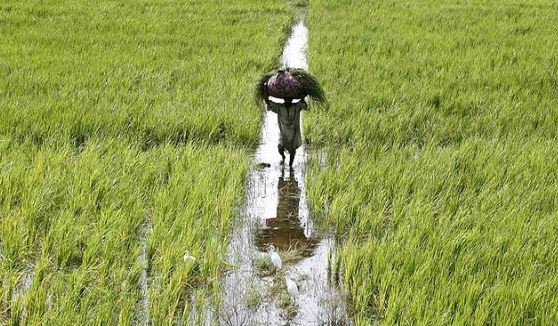Samra Athar Kakakhel
“Using the Common Agricultural Policy (CAP) and France’s “Farm to Fork” concept, it is important to make agricultural policies in Pakistan more progressive and accessible”
Pakistan is the world’s 26th largest economy and 6th most populous country, with a population of 180 million people. Pakistan has a GDP of 25% and is one of the best producers of wheat, cotton, sugarcane, mango, dates, rice, and oranges in the world.
Poverty is a significant concern in Pakistan, with over 60% of the population living in poverty. Small landholdings, limited access to markets, a lack of access to capital, inputs, and support services, limited employment prospects, and restrictive policy initiatives in their agriculture institution are all challenges for rural farmers.
Pakistan have socioeconomic, political, and health issues, as well as gender discrepancies and difference in literacy in both urban and rural populations. On other hand if we see so Pakistan’s water resources are under severe strain due to high agricultural productivity and a rapidly growing population. Agriculture uses 90% of the country’s water resources, while industry and home use share the remaining 10%.
Floods, earthquakes, landslides, draughts, and conflicts, such as the flood of 2010, which affected 20 million Pakistanis, are all common natural and man-made disasters in the country.
Keeping in mind that Pakistan’s entire problem stems from its terrible agricultural policies. Agriculture policy and mechanism proven to be a labor disrupting strategy that drove many poor farmers into urban slums. Inefficient agricultural management techniques are frequently identified as important issues that continue to restrict Pakistani agricultural productivity. Despite being a significant producer of wheat, rice, sugarcane, and cotton, rural parts of the country remain impoverished, and food insecurity is becoming a national problem.
A large number of farmers in the country waste water by utilizing flood irrigation to cultivate crops like rice, and they have carelessly destroyed subsurface groundwater by watering their crops with pumps. Such excessive water usage practices have laid vast tracts of land uncultivable due to water logging and salinity.We have climate change crisis such as floods, droughts, and growing water scarcity. There is no technologies to fix to the threats posed by climate induced disasters.
As a result, Pakistan’s economic cooperation with France must be improved, both bilaterally and inside in the European Union. We can improve agricultural manufacturing technologies across the country if we follow the European model for agriculture, just as France does, and implement the Common Agricultural Policy (CAP) action plan and the “Farm to Fork” strategy. There should be High-level interactions between the two nations’ leaders which can help us in strengthening bilateral ties more with France. In the future, Pakistan’s Ministry of National Food Security and Research should adopt France’s priority for CAP reforms for environmental ambition, which must be followed strategically, because France prefers to grow protein-rich crops by utilizing linked support and system maintenance, such as planting authorizations.
It is vital to focus on rural poverty, to capture and make agricultural policies in Pakistan more progressive and accessible as in France. Subsidies and other incentives for poor farmers must be designed to encourage small farmers to participate actively in making agriculture more productive, flexible, and sustainable. It will help us in encouraging marginalized farmers to participate in rural development. If we follow France’s common agricultural policy (CAP) agenda and establish partnerships with them with the objective of expanding and scaling up successful models and projects in Pakistan by developing all relevant sectors of agriculture, it will not only support Pakistan agriculture but also promote value chain-centered agriculture development. Such intensive growth strategies and projects will facilitate and promote value chain development in Pakistan.












